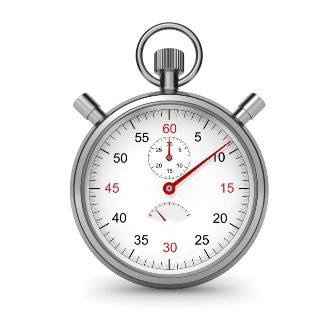
“Set the timer, strike the fuse.”
Marc Copley
Ironically, we often procrastinate on tasks that benefit us the most in business or in life. In business it may take the form of procrastinating on making client calls or contacts, marketing or completing taxes. Each of these tasks have a financial consequence tied to them-positive or negative depending on whether or when we get them done.
In our personal lives procrastination may take the form of sitting on the couch in front of Netflix for too long, causing us to get to bed later than we meant to. Or it might look like cleaning every part of our home instead of getting on the treadmill. Procrastinating here may affect our health if we aren’t getting enough sleep or exercise.
Procrastinating temporarily allows us to put off something we don’t want to do, but it comes with a dose of stress because we still have the task hanging over our heads and we know it.
One strategy people commonly use is waiting until the last minute because they know they’ll be forced to do it and then rush to get it done. At that point it’s now or never if they have a deadline. Working under pressure like that can be okay sometimes but working in that manner all the time can lead to mistakes, stress and burnout.
Instead of working last minute under the gun, I’d rather have you try working under a timer. Preferably a timer that allows you to see the countdown of time vs. an alarm set on your phone. There’s a little something called Parkinson’s Law which says we take as much time as we give ourselves to complete a task. If you give yourself all day, you will probably drag something out all day. If you give yourself two hours, you’ll probably get it done in two hours, or at least you can come close. Of course, you must be reasonable in your estimation of how long you think something will take you to get done. You can’t get a six-hour project done in two hours just because you focus for two hours. A timer isn’t magic, but almost.
So, get a timer and give it your best estimate for your task. Using a timer creates a limit on how long you must work on this one thing. When you’re procrastinating on something you don’t want to do, this can really help you feel l like the task isn’t going to go on forever and you can move onto something else when the timer goes off. Using a timer forces you to work faster to get the work done before the timer goes off. I think it creates a bit of competition to beat the clock!
A timer I recommend is the TimeTimer. (Contains an Amazon Affiliate Link)
Use a timer to light a fire under yourself, work uninterrupted during that time and watch your productivity spike!
“Set a timer and compete to beat the clock to conquer procrastination.”
Monika Kristofferson



